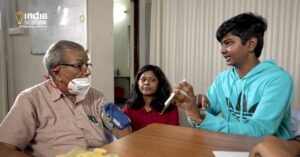This Engineer’s Smart, Portable Device Prevents Deaths In Childbirth at 1/3rd Cost
Arun Agarwal’s smart technology has been deployed in 115 hospitals and has monitored over 25000 women across India.

As per the Sample Registration System report released recently, India’s maternal mortality rate (MMR) has reduced by 26.9 per cent since 2013. MMR is the number of maternal deaths due to pregnancy-related complications like internal bleeding, anaemia and infections per 1,00,000 live births.
While the drop can be termed as good news, the figures are still a serious cause of concern and need to be addressed.
Switch from chemical-coated cookware to products made from cast iron, like this one, that are not only sustainable and environmentally conscious, but also benefit your health!
Multiple reasons ranging from access to quality care, untimely diagnostics, understaffed health experts to lack of awareness and medical facilities can be attributed to mortality and morbidity among newborns and mothers.
In a bid to bridge the gap between the demand and supply of medical care, Janitri Innovations, a 3-year-old startup based in Bengaluru, has developed a non-invasive cardiotocography (CTG) technology that can consistently monitor vital parameters of mothers pre and post-delivery. 
The Better India spoke to Arun Agarwal, the founder of the startup, to get a better understanding of the technology.
“It is a combination of hardware and software that tracks labour progress in real-time in an easy-to-understand format. The device is designed in a way that sends live data to doctors present anywhere in the world so that if there are any complications, the doctors can recommend the best course of action immediately.”
The hardware or monitoring device called ‘Keyar’ is wearable and comprises an electrode patch with sensors that reads and records the fetal heart rate, uterine contractions and maternal pulse rate. Readings are transmitted to ‘Daksh,’ a mobile application developed by Janitri, which generates the partograph, a graphic record of vital observations to assess progress during labour.
Once the vitals of the patient are entered in tbe application, it reminds the staff nurse to monitor the labour vitals, as per the standard WHO intrapartum protocol. It also generates alerts in case of complications, based on an inbuilt algorithm.
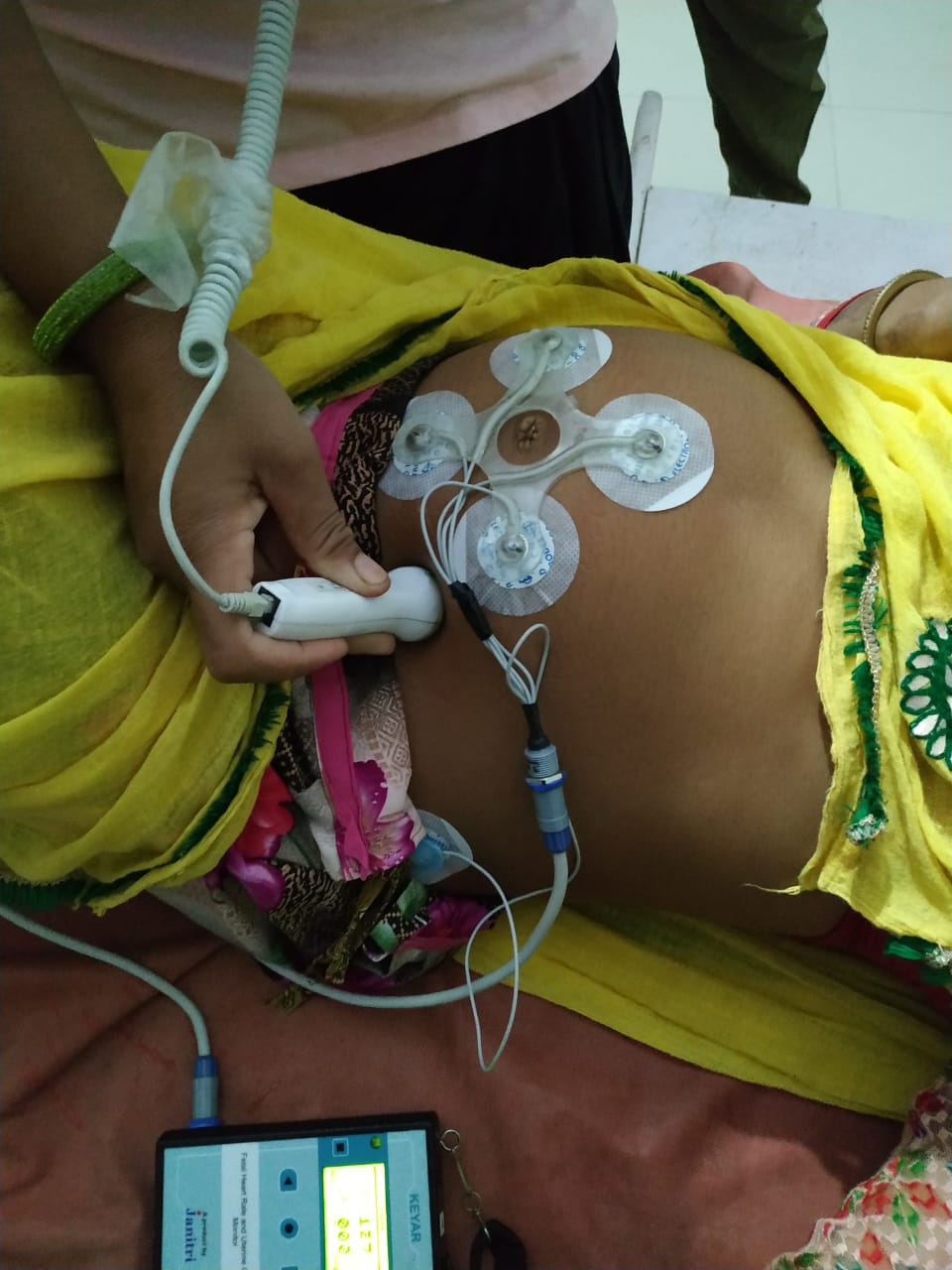
Understanding The Problem
“I was born and raised in Rajasthan’s Alwar district, and I used to often hear about the health-related complications during birth. My neighbour lost her newborn, and a relative died in labour. The unfortunate incidents pushed me to work in the field and come up with a solution,” mentions Arun.
It was during his undergraduate days at VIT, when Arun actively started researching about MMR statistics across the world and realised just how widespread the issue was in developing countries.
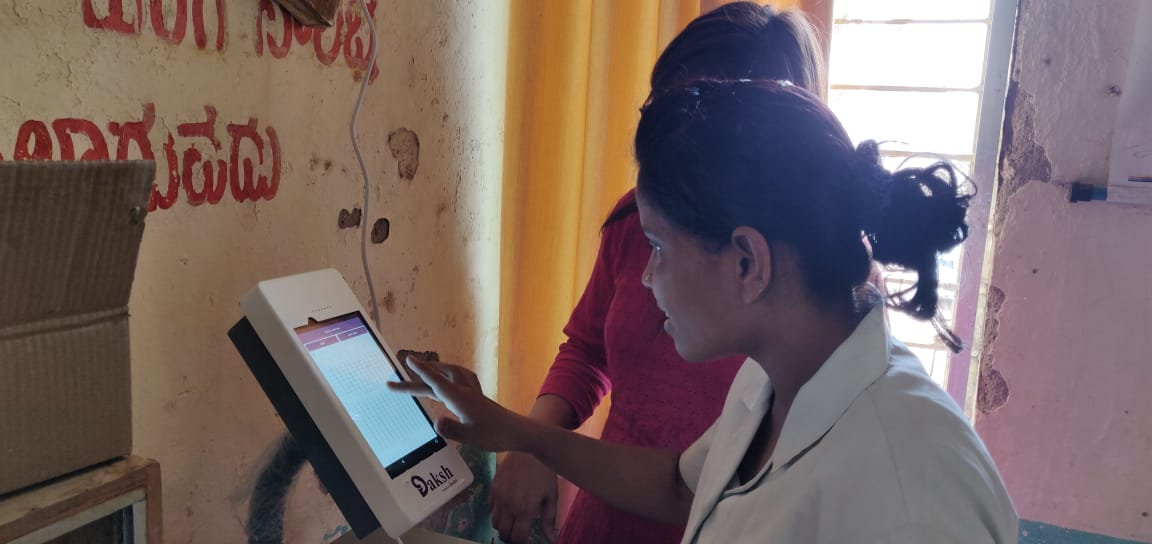
The research continued during his Masters, and to understand the grassroots problems, Arun started visiting hospitals and clinics on weekends. There, he interacted with various stakeholders like pregnant women, gynaecologists, nurses, lab technicians and local-level health centres to get an overall picture.
“Staff nurses assist 80 per cent of deliveries in low middle-income countries like India and fill the partograph to record the data, post-delivery. Unless they are trained, this is a complicated process. I visited close to 100 hospitals (private, government) in rural and urban areas. I saw infrastructure missing due to affordability, overworked and unskilled staff. In addition to that, connectivity and quality care were also missing,” shares Arun.
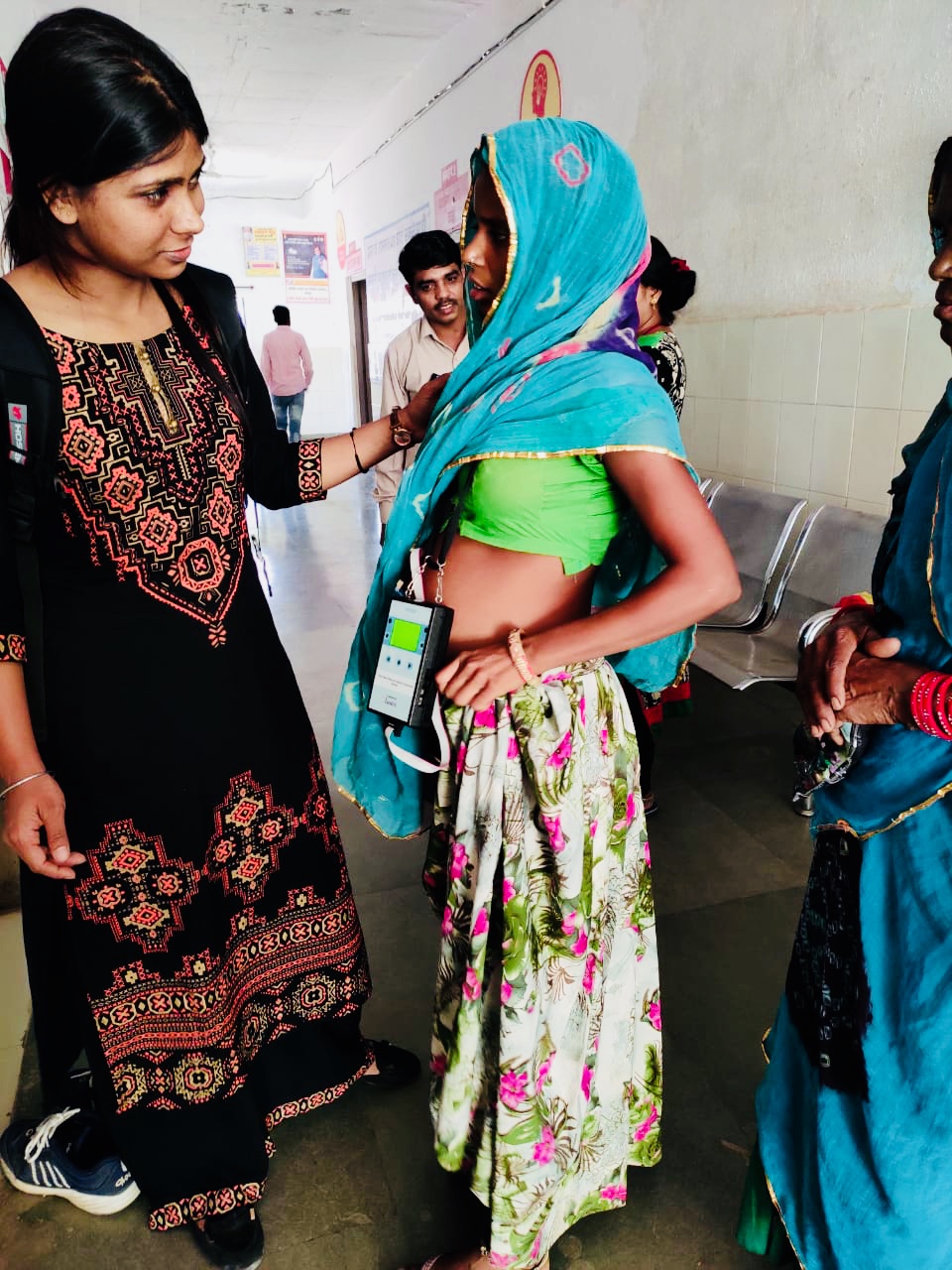
Another issue he found was with the Cardiotocograph that monitors fetal heartbeat and uterine contraction.
“It displays both the parameters in a graphical format and requires gynaecologists to study the patterns and diagnose the mother and fetus accordingly. Based on that, they take an early decision to prevent any mortality or morbidity. Besides, the CTG is expensive and non-portable,” he adds.
In 2015, through its one-year fellowship, the Biotechnology Industry Research Assistance Council, mentored and financed Arun’s idea of using technology to curb preventable deaths.
A year later, Arun registered the Janitri Foundation.
Making an Impact
Keyar costs Rs 45,000, which 1/3rdthe price of a CTG. It runs on battery and is easily portable as compared to CTG where the mother’s movement is restricted.
“It is a patch that is to be placed on the abdomen during labour pain and all the data will be transferred to the app. The best part is that nurses need not physically monitor the patient every now and then. In case the patient has to be transferred to a better-equipped medical centre, then the progress report can be shared with the hospital. This way, the doctors can be prepared for what is coming,” says Arun.
The feedback has been largely positive, as well.
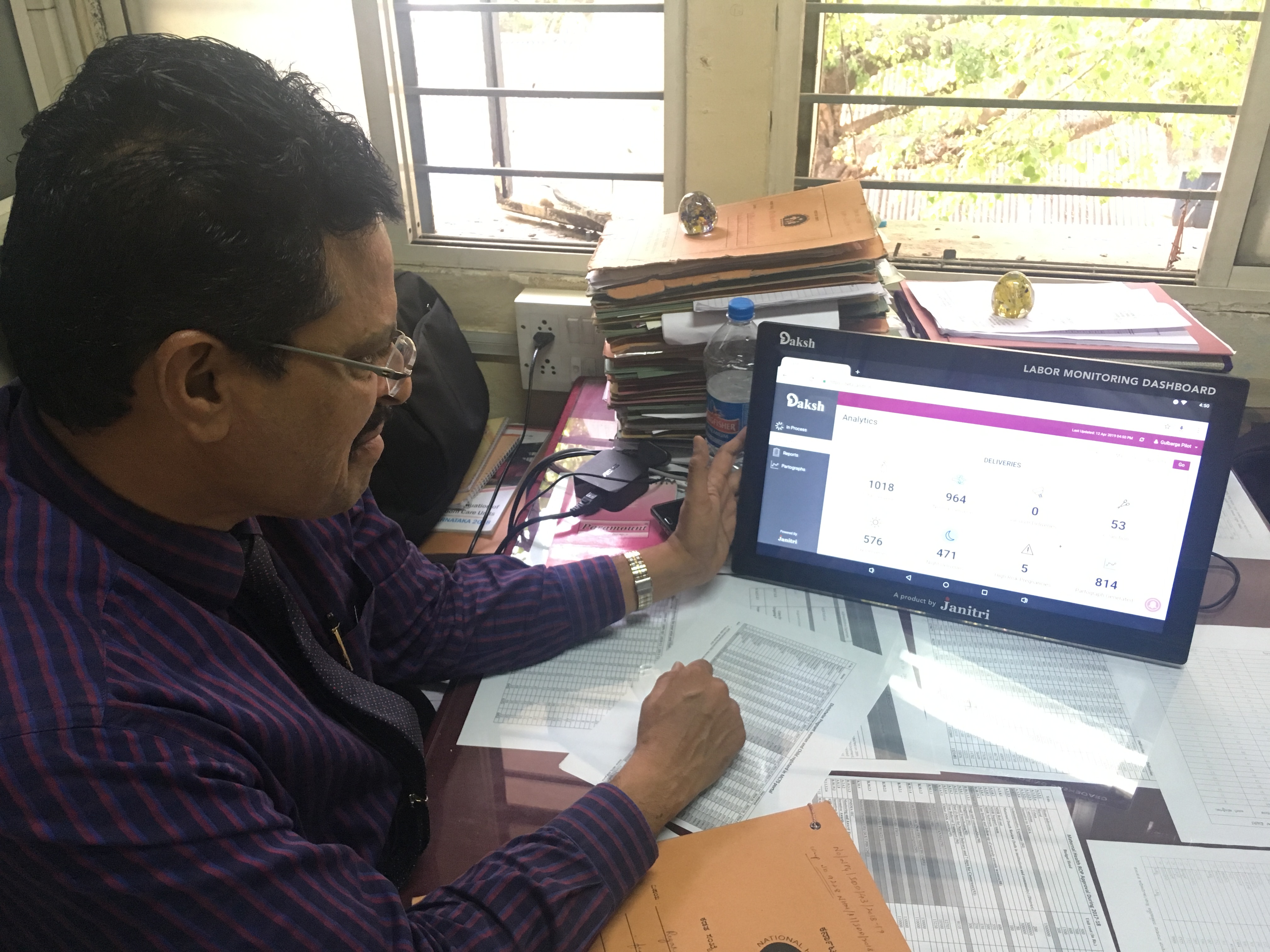
A few months ago, Keyar was deployed at Rangadore Memorial Hospital, Bengaluru, and as per Dr Latha Venkatram, an obstetrician-gynaecologist, the device is as effective as CTG machines.
“Janitri’s Keyar is a cost-effective, portable, very easy to use, women-friendly and real-time monitoring tool which should be used in every labour ward, especially in the rural areas where medical staff and infrastructure are inadequate,” she told NDTV.
Meanwhile, a staff nurse at the G-H Pavagada health facility in Karnataka’s Tumkur district said that her workload has reduced thanks to Daksh.
“Before I was introduced to Daksh five months ago, I had to juggle between monitoring pregnant women, filling admission forms and reports and also take care of the discharge procedures. Now we directly enter their details in the tablet and the partograph is generated automatically. The tablet gives an alarm every 30 minutes to check the fetal heart rate. If gynaecologist is on leave or in a meeting, the data can be viewed on the doctor’s phone,” she says.
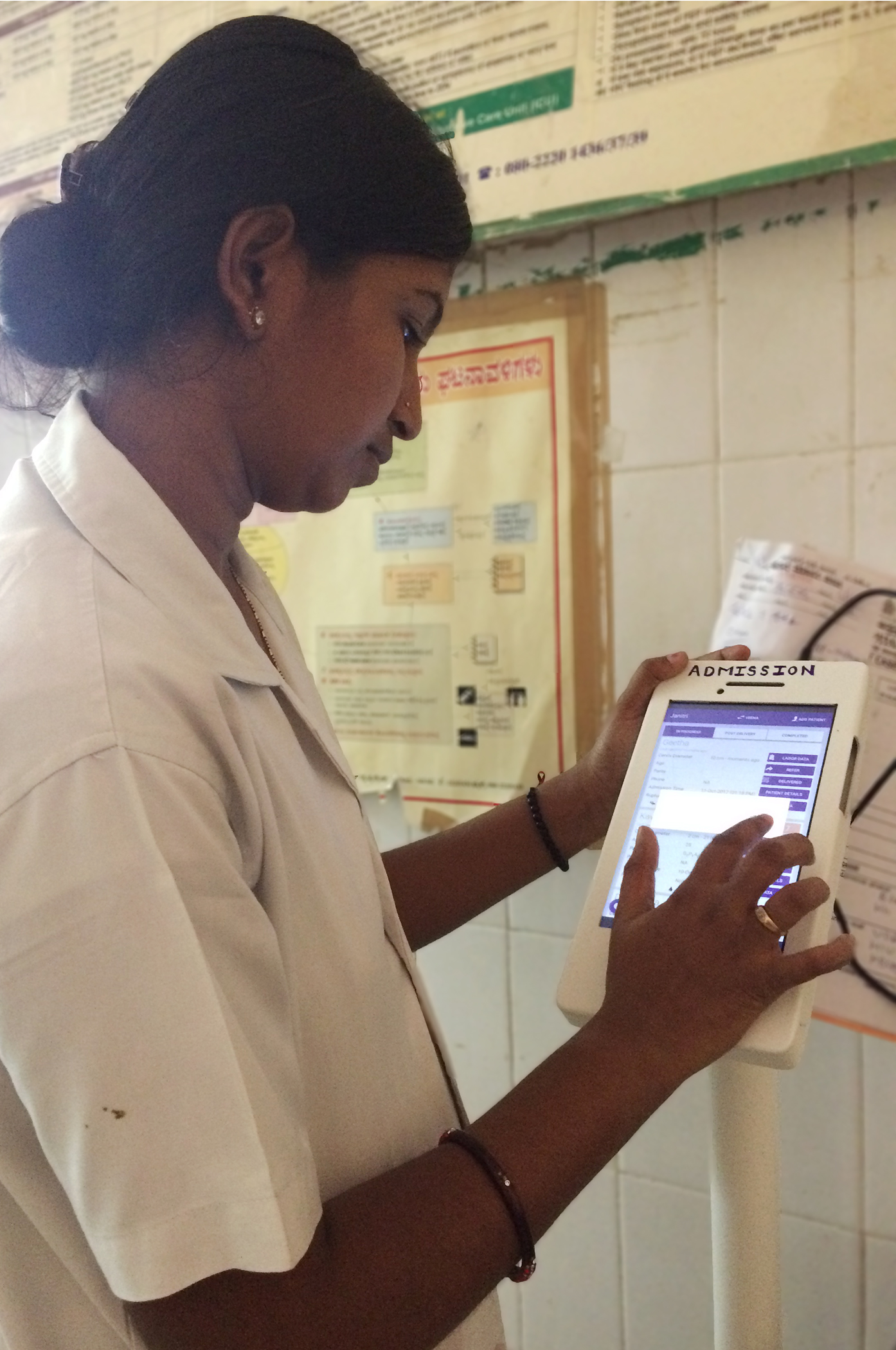
UNICEF estimates that 26 million babies are born in India every year, and there are around 70,000 registered obstetrics/gynaecology doctors. According to the Federation of Obstetrics and Gynaecological Societies of India, India falls short of doctors who can cater to pregnant women and new mothers by 40 per cent.
With India still coping with problems of quality health care and unstaffed nurses, Arun’s technology can help in curbing mortality rates.
Get in touch with Janitri Innovations here.
All the images have been sourced from Janitri Innovations.
Also Read: Pregnant TN Lady Contracts HIV After Blood Transfusion: What You Must Know
(Edited by Gayatri Mishra)
Like this story? Or have something to share?
Write to us: [email protected]
Connect with us on Facebook and Twitter.
This story made me
- 97
- 121
- 89
- 167
Tell Us More
We bring stories straight from the heart of India, to inspire millions and create a wave of impact. Our positive movement is growing bigger everyday, and we would love for you to join it.
Please contribute whatever you can, every little penny helps our team in bringing you more stories that support dreams and spread hope.








